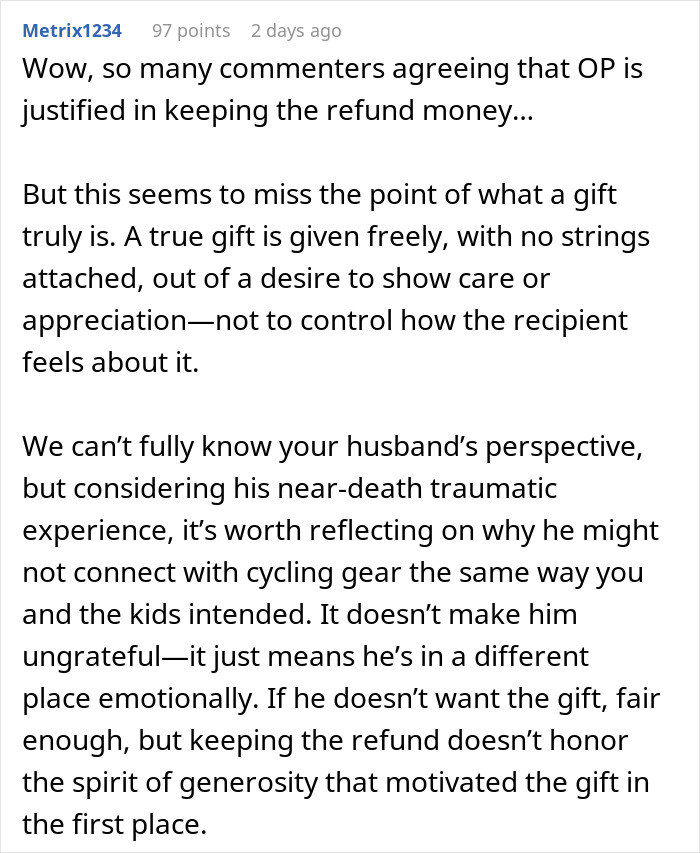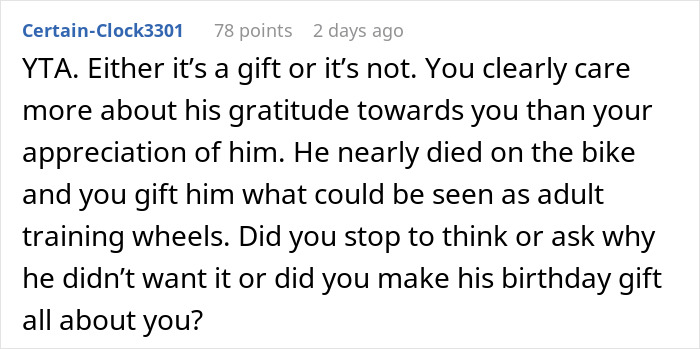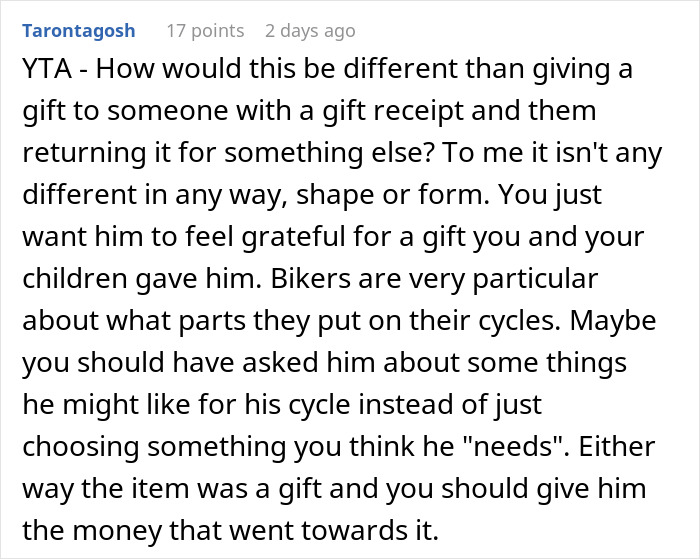It’s not unusual to receive a gift you don’t want and might never use. In fact, 75% of Americans say they receive up to seven gifts a year that they will never use. But what if the gift is really well thought out and meant for one of your hobbies? Is it ungrateful to refuse it?
This wife thought so. When she gifted her husband, an avid biker, a $500 bike radar and camera, he was less than happy with his birthday present. But, when she returned the gift and got her money back, the husband demanded she gift him the $500. She refused, and, thus, the drama began.
To keep her husband safe from future accidents, this wife gifted him a bike radar

Image credits: engin akyurt / unsplash (not the actual photo)
However, he wasn’t happy with the present and said he would rather have the $500 the gift was worth



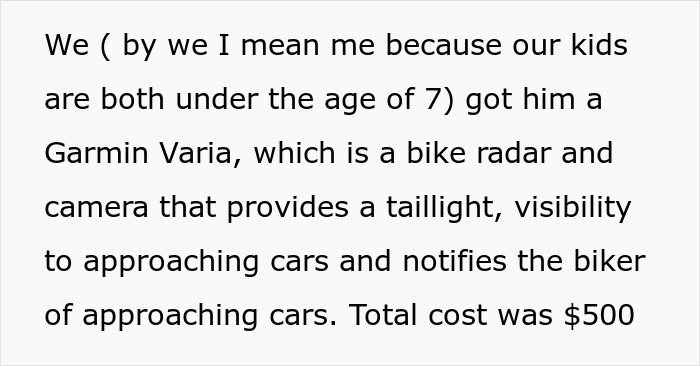

Image credits: David Dvořáček / unsplash (not the actual photo)
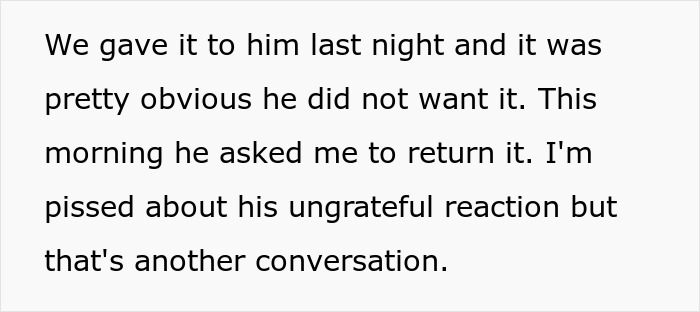
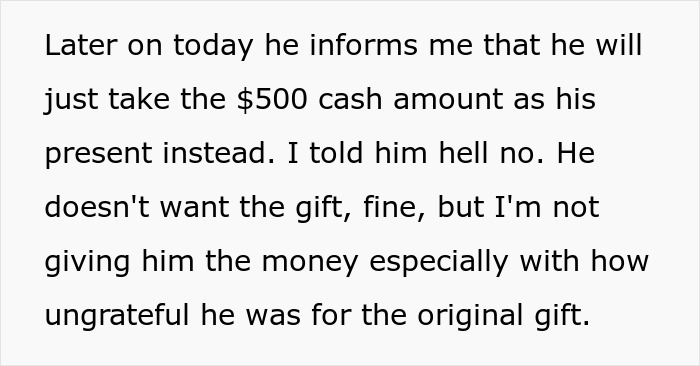
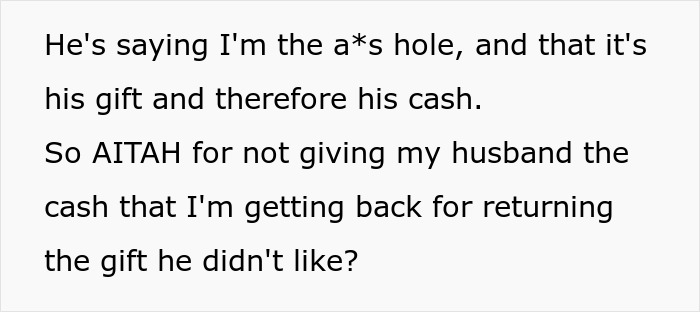
Image credits: Zealousideal-Mix6580
The person receiving a gift should be able to do with it what they want
Usually, when a person doesn’t like a gift they’ve received, they lie about it, and you’ve probably done it too. According to one poll, 62% of Americans say they have lied about liking a gift. The people who usually gave unwanted gifts were grandmothers, children, and grandfathers.
Most people expect good gifts from their partners. They’re supposed to know us better than anyone, after all. And there’s nothing wrong when the price of the gift reflects that. Event Source recommends spending around $100-$200 for a birthday gift to a long-term partner. So, even if $500 can seem quite a lot for a birthday gift, we have to keep in mind that the OP’s gift was very personal and purposeful.
Many commenters speculated why the husband didn’t want the gift when it was seemingly so useful. Some thought that maybe he still had some unresolved emotional trauma about the accident and saw this gesture as insensitive. Others implied that his asking for the money back was more suspicious.
Whatever the reason, gifts generally come with the “no backsies” rule. In a recent interview for Bored Panda, financial therapist Nathan Astle, LMFT, CFT – I™ explained that the point of gifts is for the receiver to decide what to do with them.
“If you are giving a gift and have a specific request with it, that needs to be made explicit at the time of giving the gift,” Astle said. “But, in the end, that’s the whole point of gifts is that it is up to the other person how it will be used.”
If the giftee has a vision in mind of what the receiver should do with the gift, they should communicate their wishes early on. In this case, perhaps the husband himself should’ve returned the gift and kept the money. At the end of the day, as Astle told us, “we can’t control what others do when we give a gift.”
Some people might enjoy gifts that don’t break the bank more

Image credits: Kateryna Hliznitsova / unsplash (not the actual photo)
When the husband said that he didn’t want anything, perhaps he meant that it would have been better to get nothing than an unwanted gift? Sometimes, when we’re buying gifts, whether they’re for one’s birthday, anniversary, or even Christmas, we wrongly assume that the more expensive, the better.
Yet there is a more eco-friendly and sustainable way to give presents. Here are a few suggestions on what gifts to give your loved ones from Good On You.
Instead of gifting items and objects, opt for experiences – workshops, classes, or even time spent together. Pottery, woodwork, and jewelry-making classes are just a few options to choose from. For people who like more luxury experiences, you can consider massages, spas, or even a float tank.
Other non-item gifts can be donations to charities. A great idea is to donate in the name of the other person to an organization or a cause they support. Some people prefer homemade gifts over any kind of other. It’s personal, crafted with love, attention and care. Depending on what talent you have, a sweater, a poem, or delicious cookies can be great gifts.
The same is true about second-hand items. There are three upsides to buying used stuff: it’s original, it doesn’t break the bank and it reduces waste. Second-hand shops are treasure troves for unique, one-of-a-kind items, so you’re bound to find something for everyone.
“He said he ‘didn’t need anything,'” people pointed out how the husband had no right to demand the money
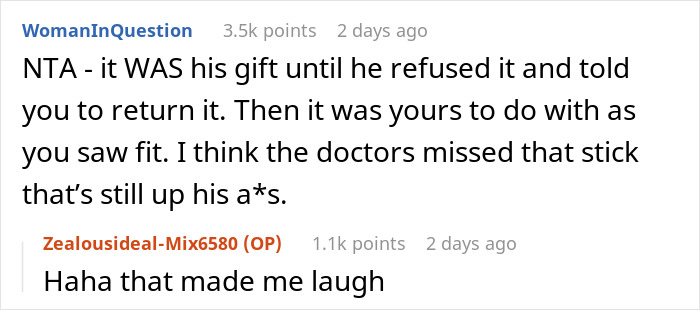

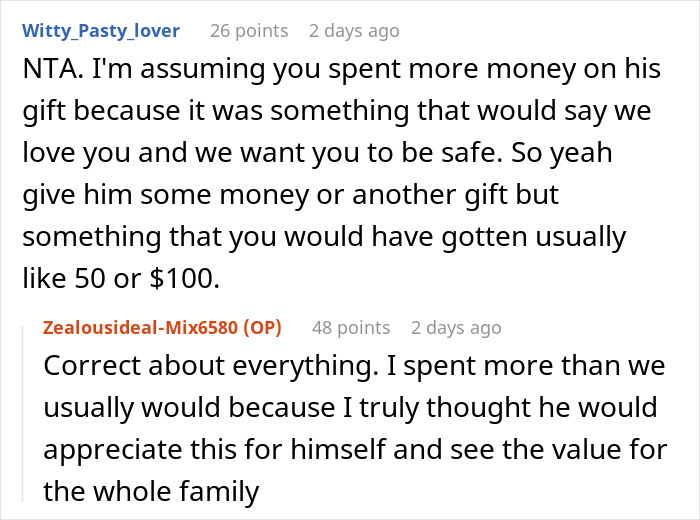




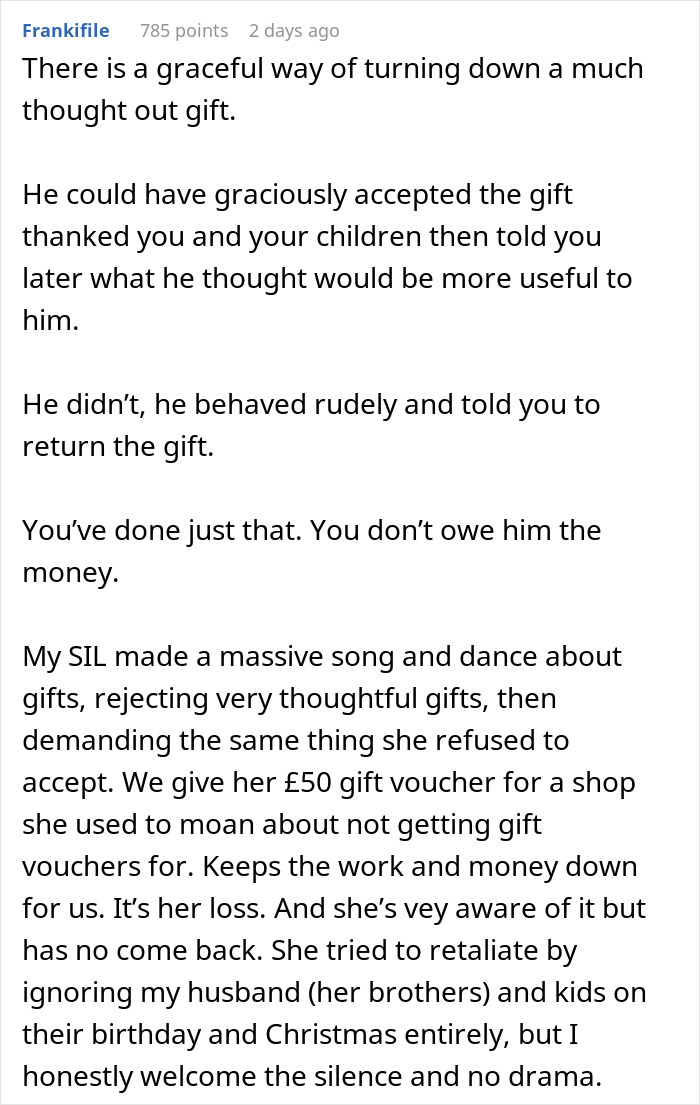

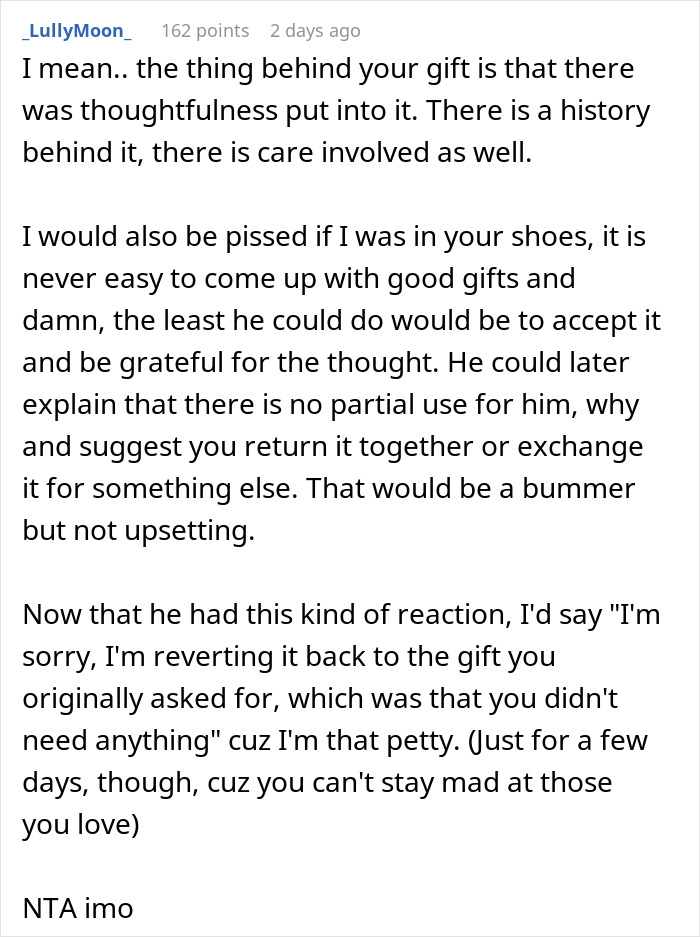
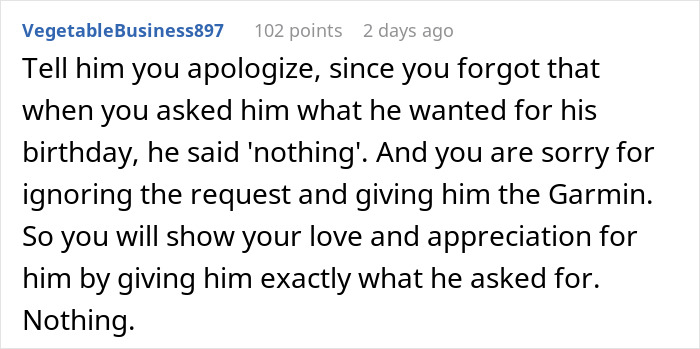

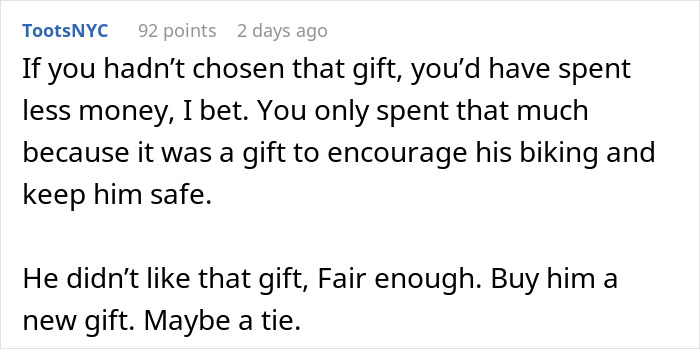




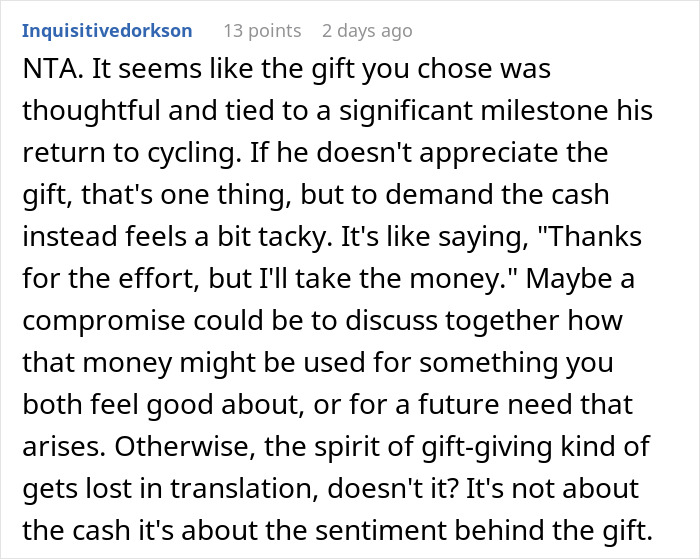
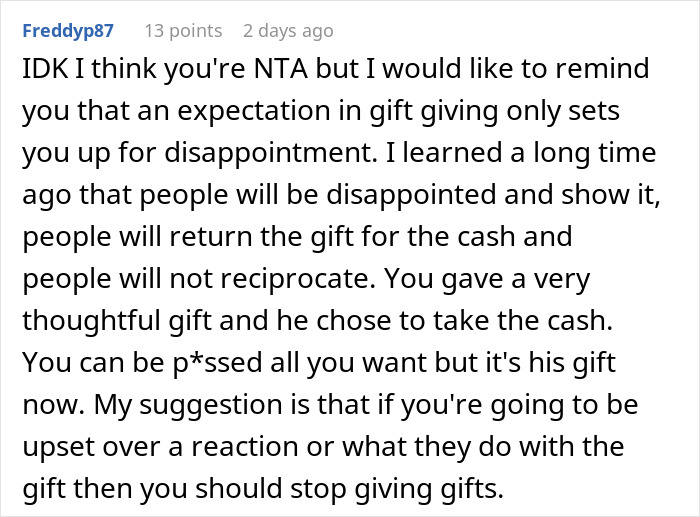
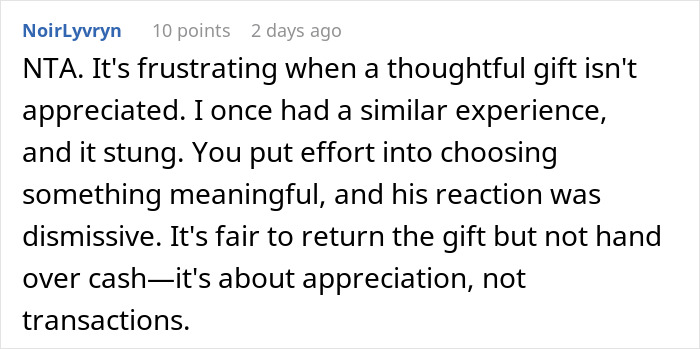
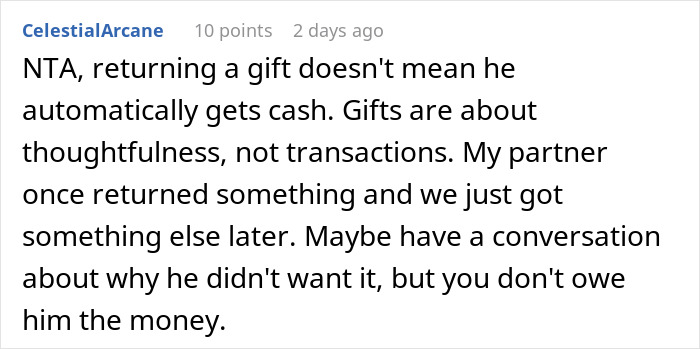



However, some thought both parties were at fault: the husband for not explaining, and the wife for being so bitter

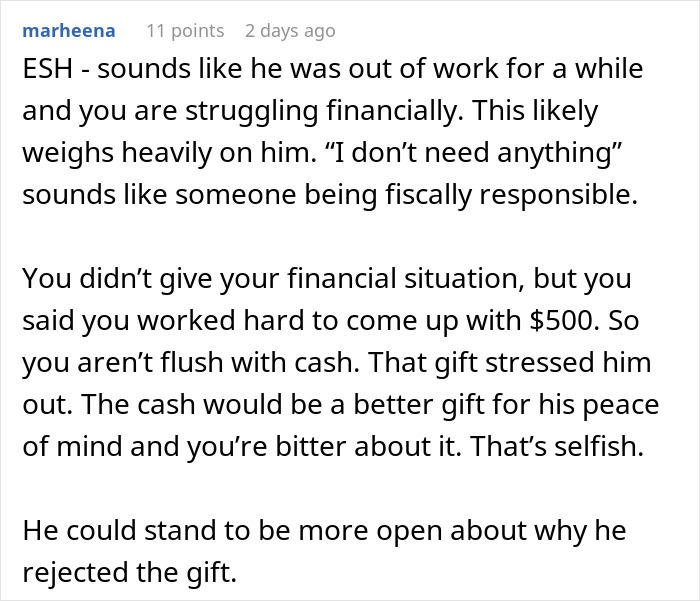
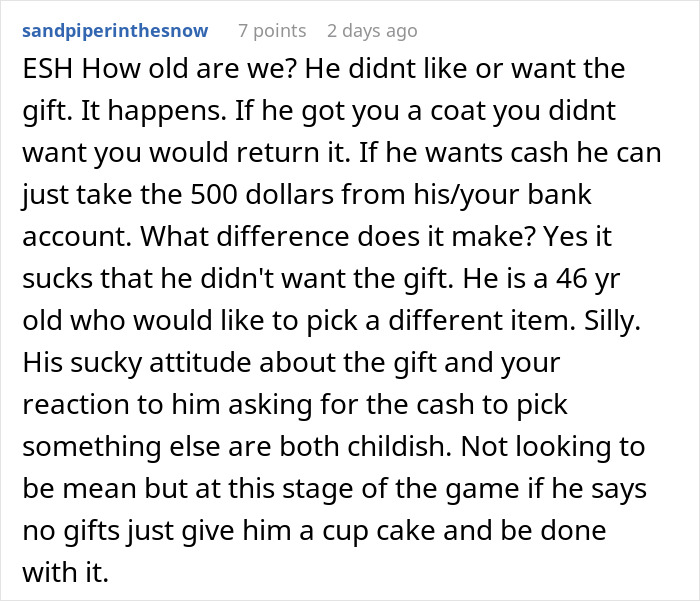

And some called out the OP as rude for taking back a gift, even in cash form
